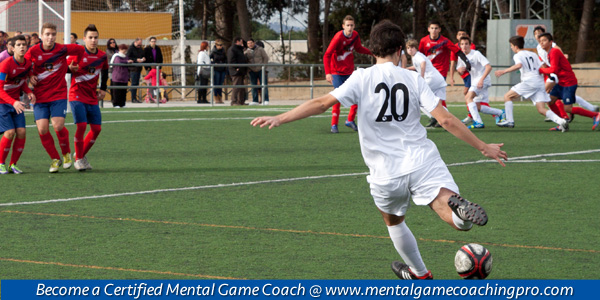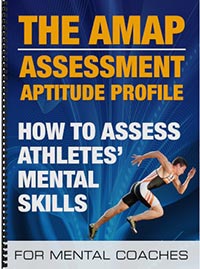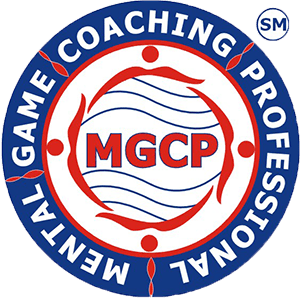
I can’t believe that it’s been almost 22 years since I started the MGCP certification program in 2004.
The course has evolved a lot over the last decade. And it continues to improve as I receive feedback from participants each semester and questions from mental coaches.
But one big challenge still remains for all mental game specialists and sports psychologists…
How do you get coaches and athletes to feel that they need your mental game coaching services?
This is not an easy task, especially in some parts of the world where acceptance of mental training is low in general.
Unfortunately, many people view mental coaching services as a luxury more than a necessity.
My short answer to the question has four parts:
- Become a credible mental game coach
- Educate your group of athletes about the benefits of sports psychology
- Do outstanding work with athletes to help them succeed
- Use “social proof” to show that others are succeeding with mental coaching
Any practice or discipline associated with psychology (such as sports psychology) carries a negative stigma by many people – still today.
Sports psychology is not well understood by a large percent of the athletic world, especially when you compare sports psychology to other disciplines such as functional or sports-specific training.
I think most of the resistance to accepting sports psychology comes from a lack of understanding. This makes it difficult to even “get your foot in the door” despite being a competent mental coach that has a lot to offer athletes.
You probably know that credibility as a mental game coaching professional is critical to your coaching and business success…
Establishing yourself as an expert in mental game coaching will help you get more work with athletes and teams.
If you lack credibility as an authority in sports psychology or mental coaching, athletes are less willing to engage your services.
I spent more than 10 years early in my career with a lot of trial and error. I learned the hard way what helped me gain credibility as a mental coach.
Today, I’ve been fortunate to work with 1000s of athletes, teams, and performers worldwide.
Your No. 1 method to gaining credibility within your circle of influence happens when your athletes or teams “spread the word” about your coaching to others.
Nothing is more powerful than word of mouth in our line of work.
How do you think Dr. Bob Rotella became successful in the golf world? Just this one trick: His golf students thanked him after they won a tournament!
But you don’t have to start at the top. Begin with people you know who can benefit from your coaching.
Want to learn more about how to improve credibility and gain support from the athletes you work with?
Consider jump starting your career as a mental coach with the MGCP program:
https://www.mentalgamecoachingpro.com/
“I find your openness with information and willingness to help your students to excel at becoming a Mental Game Coach truly refreshing and remarkable. I enjoyed the course and found it very practical – I was able to finish the course material and start working with clients immediately.” ~Kerri Morgan, MGCP
Related Mental Coaching Articles
- 5 Challenges for Sports Psychology Experts
- Challenges As A Mental Game Coach
- Uncovering Underlying Mental Game Challenges
Mental Coach Assessment System

If you help athletes improve their mental game and want to be more effective with helping them build mental toughness, but don’t have a proven system for identifying and assessing your athletes’ mental game, I can help you…
I view this assessment as a way to “interview” athletes before they come in for coaching–and to improve organization and speed up the coaching process. Today, I call it the Athlete’s Mental Aptitude Profile or AMAP for short. Now you too can learn how to use the AMAP Assessment system with your athletes…
The AMAP System teaches you how to easily identify your athletes’ mental game challenges, what mental game issues to look for when reading the AMAP, and how to do a summary of the AMAP. In addition, you’ll also get follow up questions to ask and how learn about how to drill down on relevant topics.
